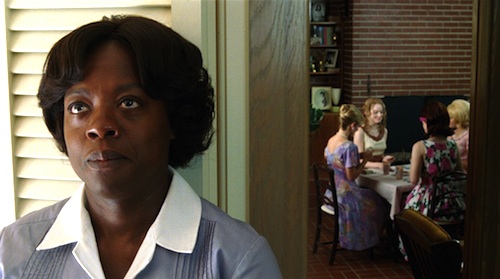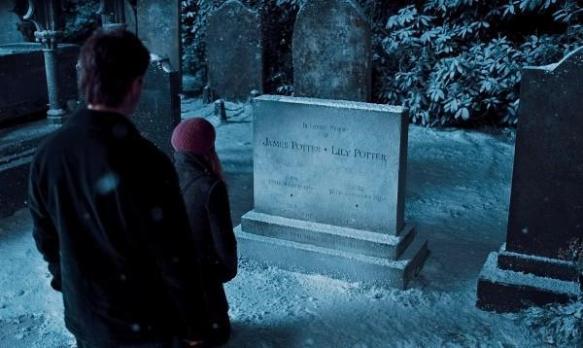This movie is surrounded by so much controversy. After reading several articles both in support and in criticism of it, and seeing the film myself, I think I would say that it is definitely worth seeing, but I would encourage anyone that does go to not let the credits be the end of your thoughts on the matter. Go see it, and then go read articles like this one or this one, that raise concerns about the portrayal of black women and the historical accuracy of this fictional tale, and then read something like this one or this one in support of the film, and maybe discuss the film with your viewing partners and decide what you think for yourselves. You could also read my analysis of some of the dialogue. This could be a great opportunity for education and honest discussion, so don’t let it be merely an excuse to munch popcorn for two and a half hours.
 The story is about a recent 1960s college graduate, Skeeter, (Emma Stone), trying to become a serious writer and finding inspiration from the social clashes she observes between her white friends and family and their black maids. Skeeter sets out to “write a story from the point of the view of the help,” assisted by Aibileen (Viola Davis) and Minnie (Octavia Spencer). There are several other subplots along the way of course, but that’s the main thrust. And whether Skeeter’s motives or “right” to tell their story is questionable or not, it is Biblical to give a voice to the voiceless. Proverbs 31:8-9 states,
The story is about a recent 1960s college graduate, Skeeter, (Emma Stone), trying to become a serious writer and finding inspiration from the social clashes she observes between her white friends and family and their black maids. Skeeter sets out to “write a story from the point of the view of the help,” assisted by Aibileen (Viola Davis) and Minnie (Octavia Spencer). There are several other subplots along the way of course, but that’s the main thrust. And whether Skeeter’s motives or “right” to tell their story is questionable or not, it is Biblical to give a voice to the voiceless. Proverbs 31:8-9 states,
Speak up for those who cannot speak for themselves, for the rights of all who are destitute. Speak up and judge fairly; defend the rights of the poor and needy.
The book that this movie brings to life has been very popular in American book clubs, and the movie has been very popular as well, winning the weekend box office the last two weeks. But to me, that only adds to the complicated questions surrounding it–if it is, as some have said, an unfair or unrealistic portrayal of black history, then what does it’s popularity say about our present society? It’s an uncomfortable question; race is an uncomfortable subject in this country.
 But maybe part of the reason this story is so easy for people to enjoy is because, really, the conflict is almost like the high school drama in Mean Girls. A bunch of women not getting along and being mean to each other in various ways. And one of the reasons for the excluding and the devaluing is racism, but another is plain snobbery (evidenced by Hilly’s mandates against the “white trash” Celia). The villainous Hilly and her minions are just as much of caricatures as the Plastics in Mean Girls, their social triumphs and defeats equally trivial. I think that’s what some people are so bothered by, because the Civil Rights movement and the realities of racial segregation were not trivial, petty social battles.
But maybe part of the reason this story is so easy for people to enjoy is because, really, the conflict is almost like the high school drama in Mean Girls. A bunch of women not getting along and being mean to each other in various ways. And one of the reasons for the excluding and the devaluing is racism, but another is plain snobbery (evidenced by Hilly’s mandates against the “white trash” Celia). The villainous Hilly and her minions are just as much of caricatures as the Plastics in Mean Girls, their social triumphs and defeats equally trivial. I think that’s what some people are so bothered by, because the Civil Rights movement and the realities of racial segregation were not trivial, petty social battles.
In any case, I do think it is a pretty good movie, worth seeing. The rating is PG-13, but I think some of it might be too heavy for a young teen. [**SPOILER ALERT** A miscarriage scene is quite graphic, with the bereaved, sobbing mother exclaiming “why is there so much blood?” Minnie’s husband beats her, and although the action is not seen, we hear him yelling at her. Yule Mae is struck in the head by a police officer’s baton. There is quite a bit of discussion regarding someone’s sh-t. **END SPOILER**] If you go see it, keep the context, (that it’s a popular movie surrounded by some reasonable criticisms,) in mind.




